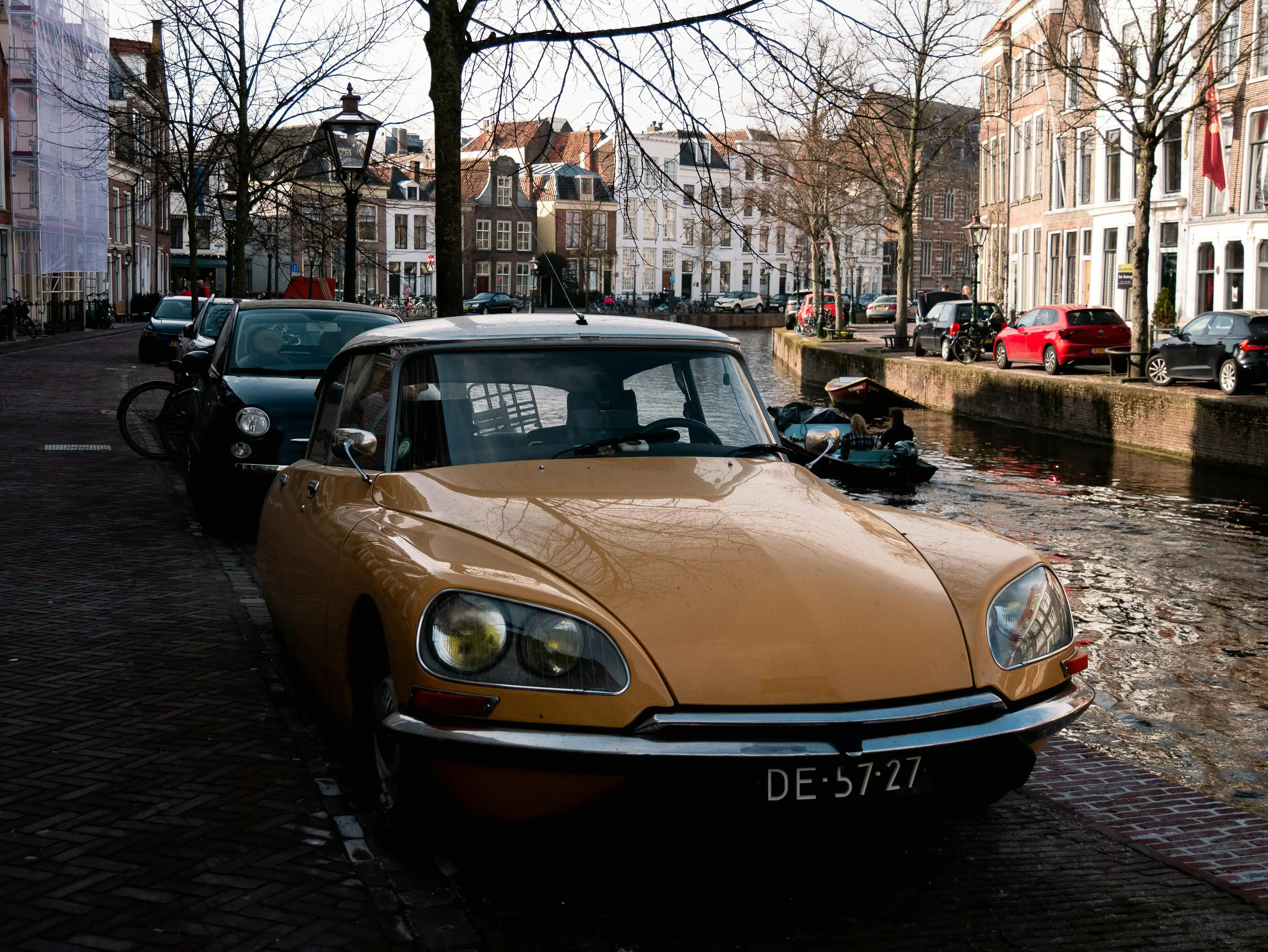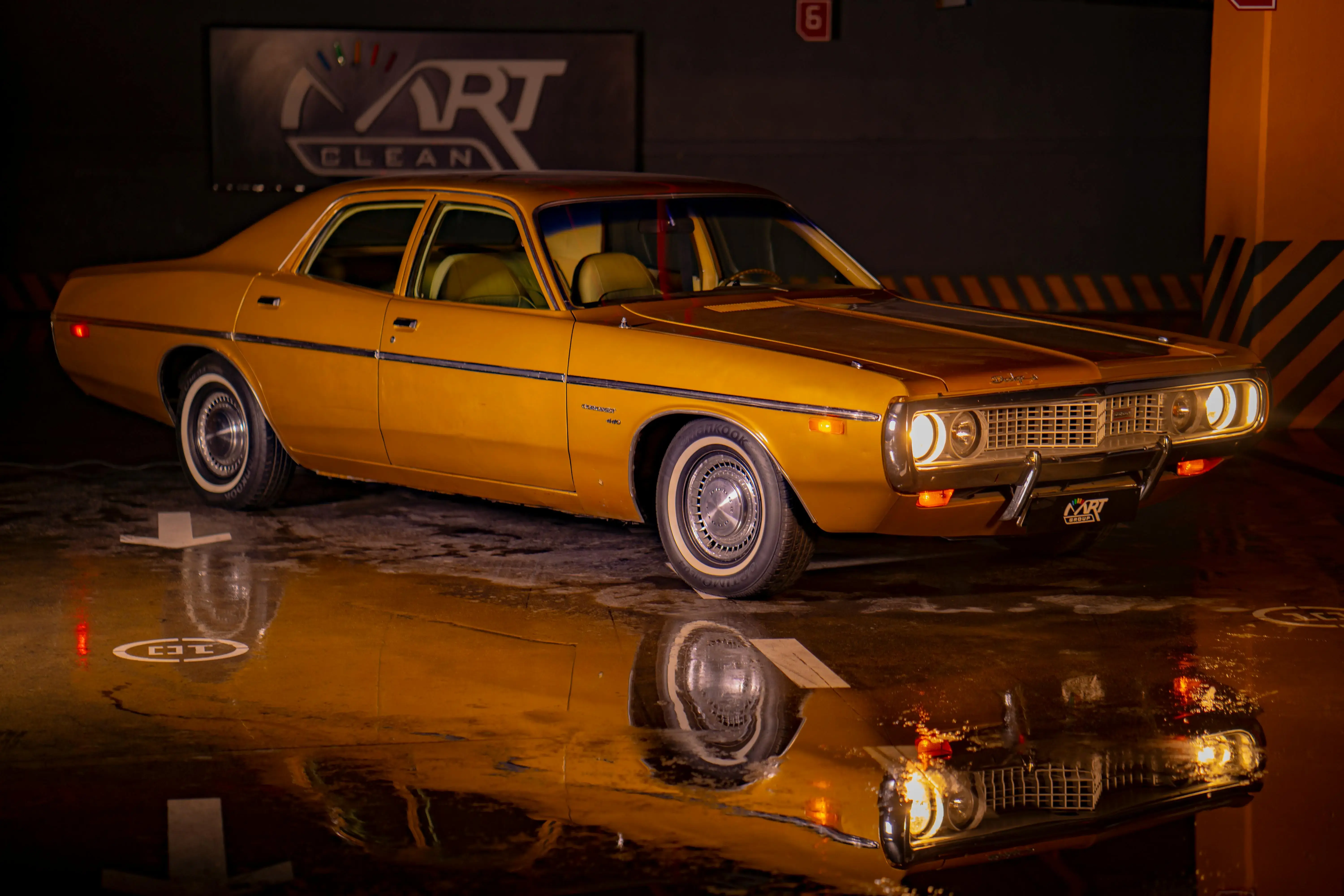Car Shipping from US to Belgium: Complete 2025 Import Guide
Belgium stands as one of Europe's top destinations for American vehicle imports, with competitive rates and world-class Antwerp port infrastructure. Car shipping from US to Belgium includes salvage imports, classic car emission zone benefits, and choices between RoRo or container shipping. Understanding the full process ensures successful imports that maximize value and compliance.
At West Coast Shipping, our Belgium import expertise encompasses every aspect of these complex processes, from specialized salvage handling to duty-free relocation imports. Through our consolidated container services and professional partnerships, we help customers navigate Belgium's automotive import requirements while optimizing costs and ensuring regulatory compliance.
Shipping Salvage Cars to Belgium Guide
Understanding Belgium's Salvage Import Framework
Belgium permits salvage vehicle imports under strict regulations that differ significantly from standard vehicle imports. These vehicles are often classified as "end-of-life" units or parts vehicles unless roadworthy restoration can be convincingly demonstrated to authorities. While Belgium offers more flexibility than many other EU nations that impose outright bans, the framework requires rigorous documentation and compliance with stringent EU environmental and safety standards.
Belgium Salvage Import Categories:
-
Parts Vehicles: Cars imported specifically for component harvesting
-
Restoration Projects: Salvage vehicles with demonstrated restoration potential
-
End-of-Life Units: Vehicles designated for recycling or parts use
-
Repairable Salvage: Damage that can potentially be professionally restored (requires proof)
Critical Compliance Requirements:
Salvage imports must comply with EU environmental regulations and safety directives. Some flood-damaged or severely compromised vehicles may be refused registration for road use even if customs clearance is obtained.
💡 Want the complete breakdown of costs, documents, and shipping methods? Check out our Car Shipping to Belgium from USA – 2025 Cargo Guide for a full step-by-step overview.
Salvage Vehicle Documentation
Proper documentation prevents costly delays and ensures compliance with Belgium's salvage import regulations and EU safety directives.
Essential Salvage Documents:
-
Salvage Title: Clear branded title indicating damage classification
-
Bill of Sale: Purchase documentation reflecting accurate salvage pricing
-
Damage Documentation: Comprehensive photographic evidence of all vehicle damage
-
Condition Reports: Formal damage assessments where applicable
-
Intended Use Declaration: Clear statement of restoration or parts use plans
Important Clarification:
Repair cost estimates are typically not mandatory for customs clearance but may be required when applying for road registration post-restoration. Declared low values can reduce taxes, but Belgian customs actively scrutinizes undervaluations, especially for potentially restorable salvage vehicles.
Container Requirements for Salvage Vehicles
Salvage cars often require specialized loading and securing procedures that differ from standard vehicle container shipping due to missing parts, damage, or non-operational status.
Salvage Container Considerations:
-
Non-Running Capability: Professional forklift loading for inoperable vehicles
-
Enhanced Securing: Additional protection to prevent further damage during transit
-
Parts Management: Proper blocking for vehicles missing significant components
-
Contamination Prevention: Special handling for vehicles with fluid damage
-
Weight Distribution: Careful loading accounting for missing or damaged parts
Common Mistakes at Antwerp Port and How to Avoid Them
Documentation Errors and Oversights
Antwerp's advanced processing systems demand precise documentation with even minor errors potentially triggering delays, inspections, and additional costs.
Most Common Documentation Mistakes:
-
Title Discrepancies: Information mismatches between titles and shipping documents
-
Valuation Inconsistencies: Vehicle values not reflecting actual purchase conditions
-
Missing Authentication: Unsigned or improperly notarized required documents
-
Incomplete Declarations: Partial completion of mandatory customs forms
-
Translation Problems: Non-certified translations of foreign documentation
Prevention Strategies:
Professional documentation review before shipment departure eliminates most common errors. Working with experienced customs agents ensures proper completion of all required paperwork and prevents costly processing delays.
💡Want to avoid delays and extra fees? Check out our guide on the Common mistakes at Antwerp Port and how to avoid them.
Customs Valuation Disputes
Antwerp customs may challenge declared vehicle values when they appear inconsistent with market conditions or comparable vehicle pricing, particularly for salvage vehicles with restoration potential.
Valuation Challenge Triggers:
-
Below-Market Pricing: Declared values significantly under comparable sales
-
Salvage Undervaluation: Repairable salvage priced too low for condition
-
Modified Vehicle Values: Custom work not reflected in declared pricing
-
Classic Car Valuations: Vintage vehicles with fluctuating market values
-
Family Transfer Pricing: Nominal values between related parties
Supporting Documentation:
Comprehensive valuation support including recent comparable sales, professional appraisals, and market analysis helps justify declared values and prevent valuation disputes.
Realistic Processing Expectations
Processing times at Antwerp often exceed optimistic estimates, particularly for salvage vehicles and classic cars requiring additional scrutiny.
Realistic Timeline Expectations:
-
Standard Vehicles: 5-7 days with complete documentation
-
Salvage Vehicles: 1-2 weeks due to mandatory inspections and assessments
-
Classic Cars: 7-14 days including valuation reviews
-
Complex Cases: Extended timeframes for unique or problematic imports
-
Random Inspections: Additional delays possible regardless of preparation quality
Storage and Associated Costs
Extended container storage at Antwerp generates additional costs that can impact total import expenses despite professional coordination.
Storage Cost Realities:
-
Free Storage Period: Limited time allowance after container arrival
-
Extended Storage: Charges apply for containers exceeding free periods
-
Inspection Delays: Random inspections can trigger unexpected storage costs
-
Special Handling: Additional fees for oversized or damaged vehicles
Mitigation Strategies:
While professional coordination minimizes storage risks, unpredictable inspections and processing delays can still generate costs despite perfect preparation and documentation.
Belgium's Classic Car Emission Zones
Understanding Regional LEZ Variations
Belgium's major cities implement Low Emission Zones with varying regulations for classic vehicles. Understanding regional differences is crucial for classic car imports and registration planning.
Regional LEZ Frameworks:
-
Brussels: 12-day annual usage limit for registered classic vehicles
-
Antwerp: Unrestricted access for officially registered historic vehicles
-
Ghent: Similar unlimited access framework with proper registration
-
Other Cities: Varying local regulations requiring specific research
Registration Prerequisites:
Classic vehicle LEZ access is not automatic and requires formal application and approval processes. Vehicles with significant modifications may be disqualified from classic status.
💡Want to learn more about how Belgium’s Low Emission Zones affect classic cars? Check out our full article.
Classic Car Registration Requirements
Obtaining classic car status in Belgium requires specific procedures that must be completed to qualify for LEZ exemptions and reduced tax benefits.
Registration Process:
-
Age Verification: Confirm vehicle meets 30+ year requirement
-
Classic Application: Submit formal application for historic vehicle status
-
Documentation Review: Provide comprehensive vehicle history and specifications
-
Modification Assessment: Ensure vehicle maintains original character
-
Official Registration: Receive classic vehicle plates and documentation
Important Limitations:
Vehicles with engine swaps, significant modifications, or non-original equipment may not qualify for classic registration regardless of age.
LEZ Compliance Strategies
Classic car owners must understand and comply with varying LEZ requirements across different Belgian municipalities and regions.
Compliance Considerations:
-
Regional Research: Understand specific LEZ rules for intended operating areas
-
Registration Timing: Complete classic car registration before LEZ access needs
-
Usage Planning: Respect any usage limitations or restrictions imposed
-
Documentation: Maintain required registration and exemption paperwork
-
Ongoing Compliance: Monitor changes in local LEZ regulations
RoRo vs Container Shipping to Belgium
Container Shipping Advantages
Container shipping provides superior protection and flexibility for most Belgium vehicle imports, justifying costs through enhanced security and service options.
Container Benefits:
-
Complete Weather Protection: Sealed environment preventing corrosion and damage
-
Theft Prevention: Secured containers eliminating unauthorized access
-
Non-Running Capability: Professional forklift loading for inoperable vehicles
-
Personal Items: Limited personal belongings shipping permitted under regulations
-
Professional Handling: Specialized loading equipment and expertise
💡Want to learn more about the differences between RoRo Vs container shipping to Belgium? Check out our full article.
RoRo Shipping Considerations
RoRo shipping offers alternatives for specific vehicle types meeting operational requirements, though with limitations affecting general suitability.
RoRo Requirements:
-
Operational Status: Vehicle must start, drive, steer, and brake properly
-
Size Considerations: Typically suited for oversized vehicles exceeding container dimensions
-
No Personal Items: Strictly prohibited from including belongings in vehicle
-
Limited Schedules: Fewer RoRo services to Antwerp compared to container options
For detailed RoRo pricing and suitability assessment, please contact our specialists for personalized consultation based on your specific vehicle and shipping requirements.
Method Selection Guidance
Choosing between RoRo and container shipping depends on vehicle characteristics and owner priorities regarding cost versus protection.
Container Recommended For:
-
High-Value Vehicles: Luxury, classic, or expensive automobiles
-
Non-Running Cars: Project vehicles or those with mechanical issues
-
Modified Vehicles: Lowered, customized, or specialty automobiles
-
Multiple Vehicles: Consolidation opportunities for enhanced cost savings
-
Risk-Averse Owners: Priority on maximum protection and security
Professional Consultation:
Expert guidance ensures optimal shipping method selection based on comprehensive analysis of vehicle characteristics, budget constraints, and protection requirements.
Import Your Car to Belgium Duty-Free
Relocation Import Exemptions
Belgium offers duty-free vehicle import opportunities for individuals relocating to Belgium under specific conditions that eliminate standard import duties and taxes.
Relocation Eligibility Requirements:
-
Residence Duration: Must have lived outside EU for minimum 12 consecutive months
-
Vehicle Ownership: Must have owned vehicle for at least 6 months before relocation
-
Belgium Registration: Must register residence in Belgian municipality
-
Personal Use: Vehicle intended for personal rather than commercial use
- Documentation: Comprehensive proof of residence history and vehicle ownership
💡 Want to know how to save on taxes when importing? Check out our article on duty-free car imports to Belgium for the full 2025 guide.
Required Documentation for Duty-Free Import
Successful duty-free import requires comprehensive documentation proving eligibility under Belgium's relocation exemption regulations.
Essential Documents:
-
Valid Passport: Current identification for exemption applicant
-
Residence Proof: Official documentation of non-EU residence for required duration
-
Vehicle Title: Clear ownership documentation for minimum 6-month period
-
Belgium Registration: Municipal registration confirmation in Belgian commune
-
Employment Verification: Official confirmation of overseas residence status
-
Supporting Evidence: Utility bills or other documentation confirming residence timeline
Documentation Standards:
Belgium customs requires official documentation that clearly establishes both residence duration and vehicle ownership timelines. Informal documentation typically won't satisfy exemption requirements.
Application Process and Limitations
Duty-free import applications require advance planning and proper submission through Belgium's customs administration systems.
Key Process Steps:
-
Eligibility Verification: Confirm compliance with all exemption requirements
-
Document Assembly: Gather all required supporting documentation
-
Customs Application: Submit duty-free import request with complete paperwork
-
Review Period: Allow 2-3 weeks for customs evaluation and approval
-
Shipping Coordination: Arrange vehicle transport with exemption authorization
Important Restrictions:
-
Personal Use Only: Vehicle must remain for personal transportation use
-
Residence Requirement: Must maintain Belgium residence for minimum period
-
Commercial Prohibition: Vehicle cannot be used for business purposes
-
Sale Limitations: Restrictions on vehicle sale timeframes after import
-
Single Exemption: Generally limited to one duty-free vehicle per qualifying person
Successfully navigating Belgium's automotive import landscape requires understanding specialized procedures, documentation requirements, and regulatory frameworks that vary significantly based on vehicle type and import circumstances. From salvage vehicle restrictions and realistic Antwerp port processing times to regional LEZ variations and duty-free eligibility requirements, each aspect demands professional expertise and careful preparation.
Belgium's combination of competitive shipping rates, favorable tax structures for eligible classics, and comprehensive import frameworks creates opportunities for American vehicle imports when properly executed with realistic expectations. Understanding common pitfalls, documentation requirements, and regulatory limitations enables successful imports that maximize value while ensuring complete compliance.
At West Coast Shipping, our comprehensive Belgium import services address every aspect of these complex processes while providing realistic guidance and professional coordination. From specialized salvage handling and Antwerp port procedures to classic car registration and duty-free applications, our expertise enables efficient processing that protects both budgets and timelines.
Whether importing salvage projects with restoration potential, navigating classic car emission zone requirements, or planning qualifying duty-free relocation imports, professional guidance makes the difference between successful Belgium imports and costly complications that can significantly impact both costs and timelines.
Plan Your Belgium Import Strategy
Ready to navigate Belgium's automotive import requirements with professional guidance? Connect with our Belgium import specialists for personalized consultation on salvage procedures, realistic processing expectations, emission zone compliance, shipping method selection, and duty-free opportunities that ensure successful vehicle imports to Belgium.
You May Also Like
These Related Stories

Shipping Classic Cars to Turkey: Taxes, Permissions & Logistics

Complete Guide to Shipping Cars to Panama: Methods, Costs & Timelines

-093789-edited.png?width=220&height=79&name=wcs_final_logo_(1)-093789-edited.png)
